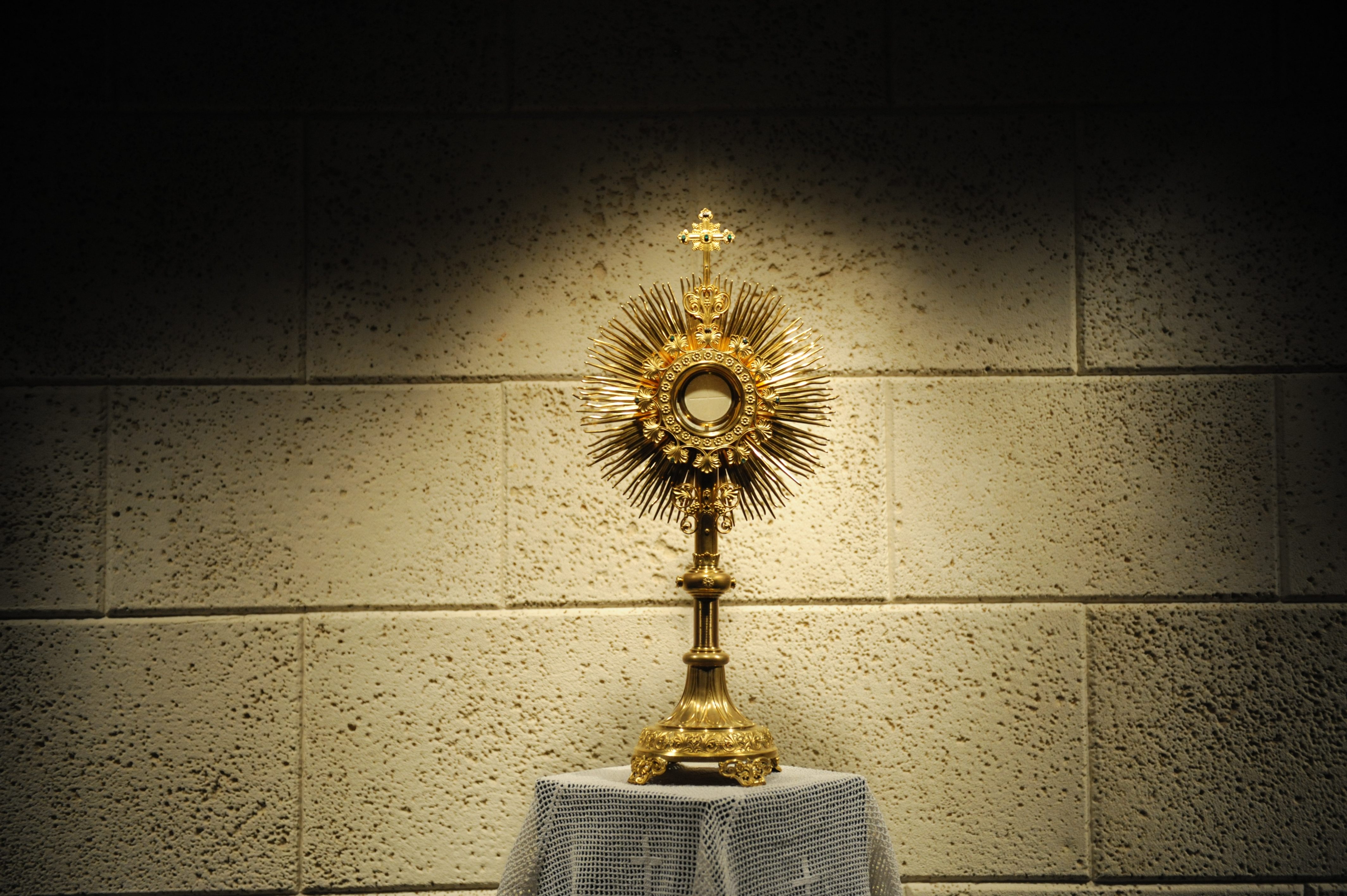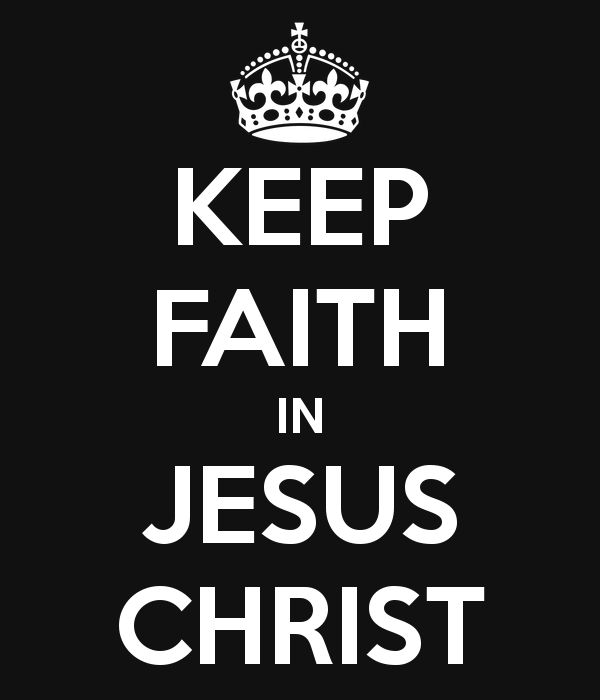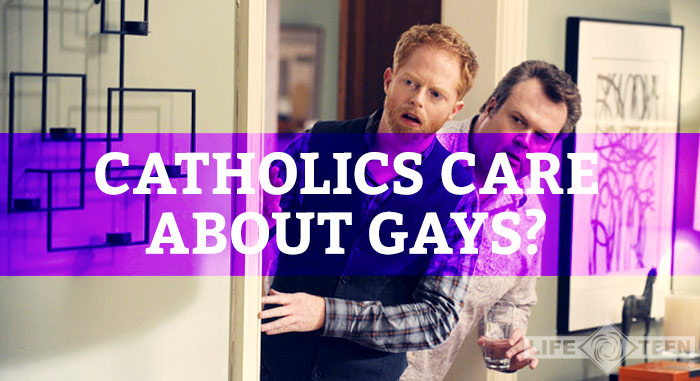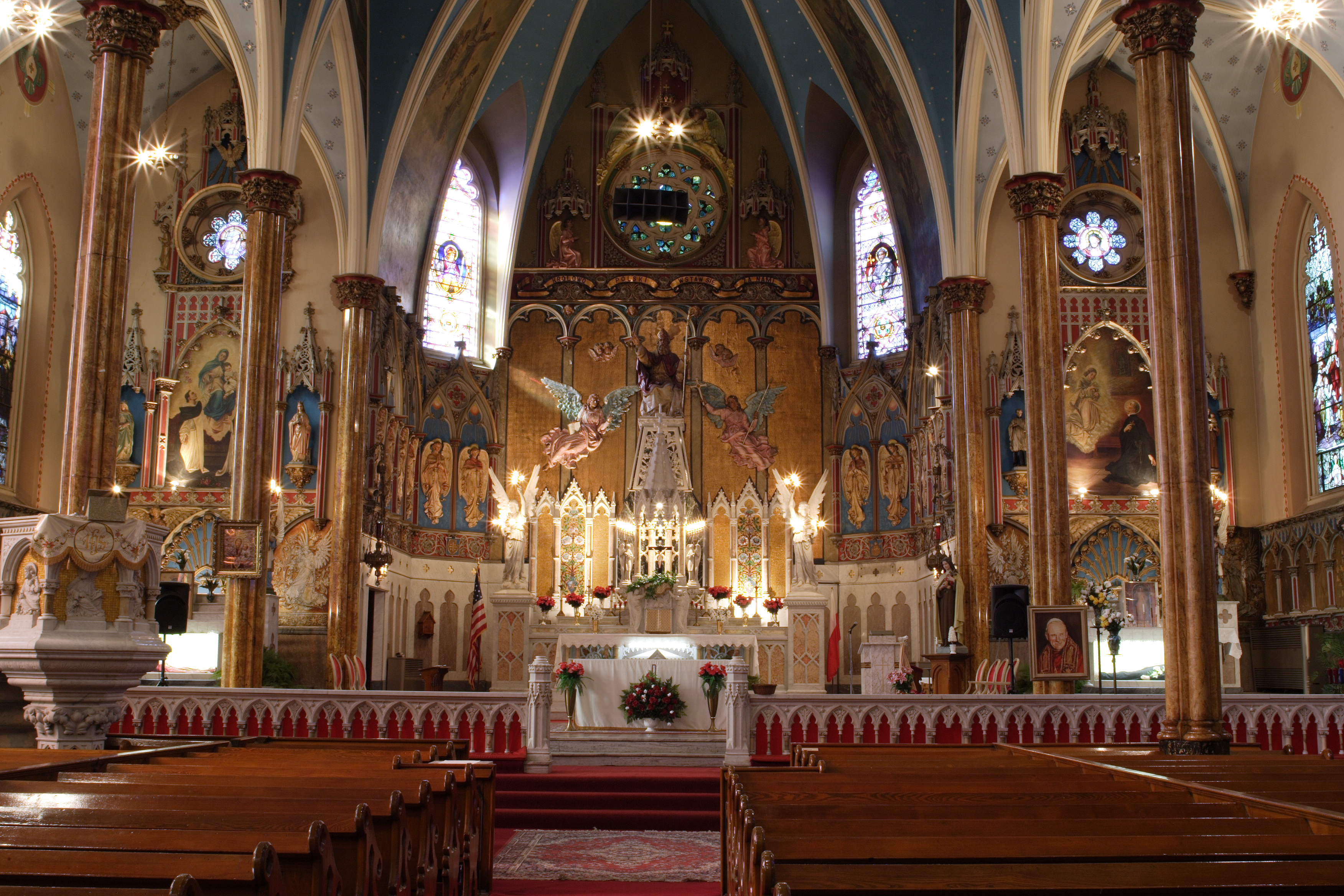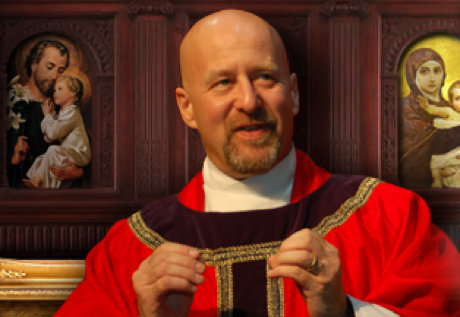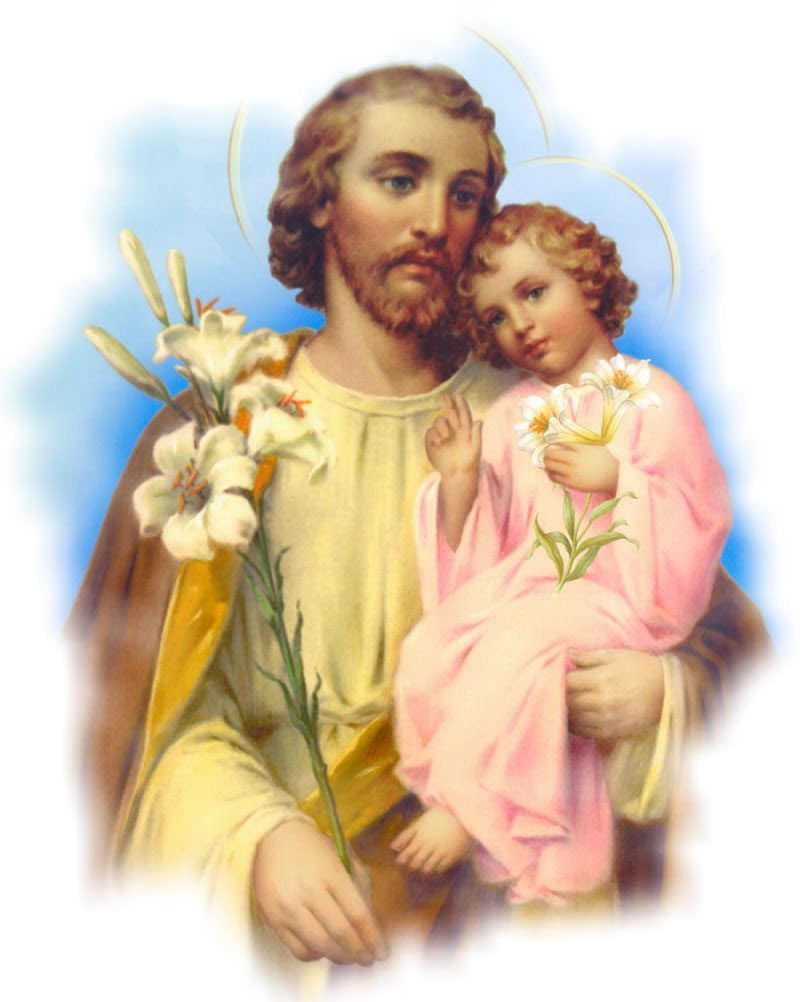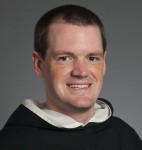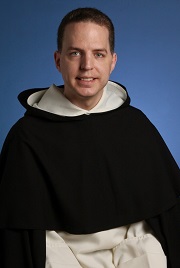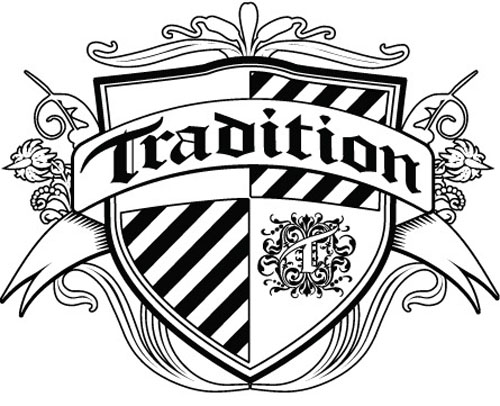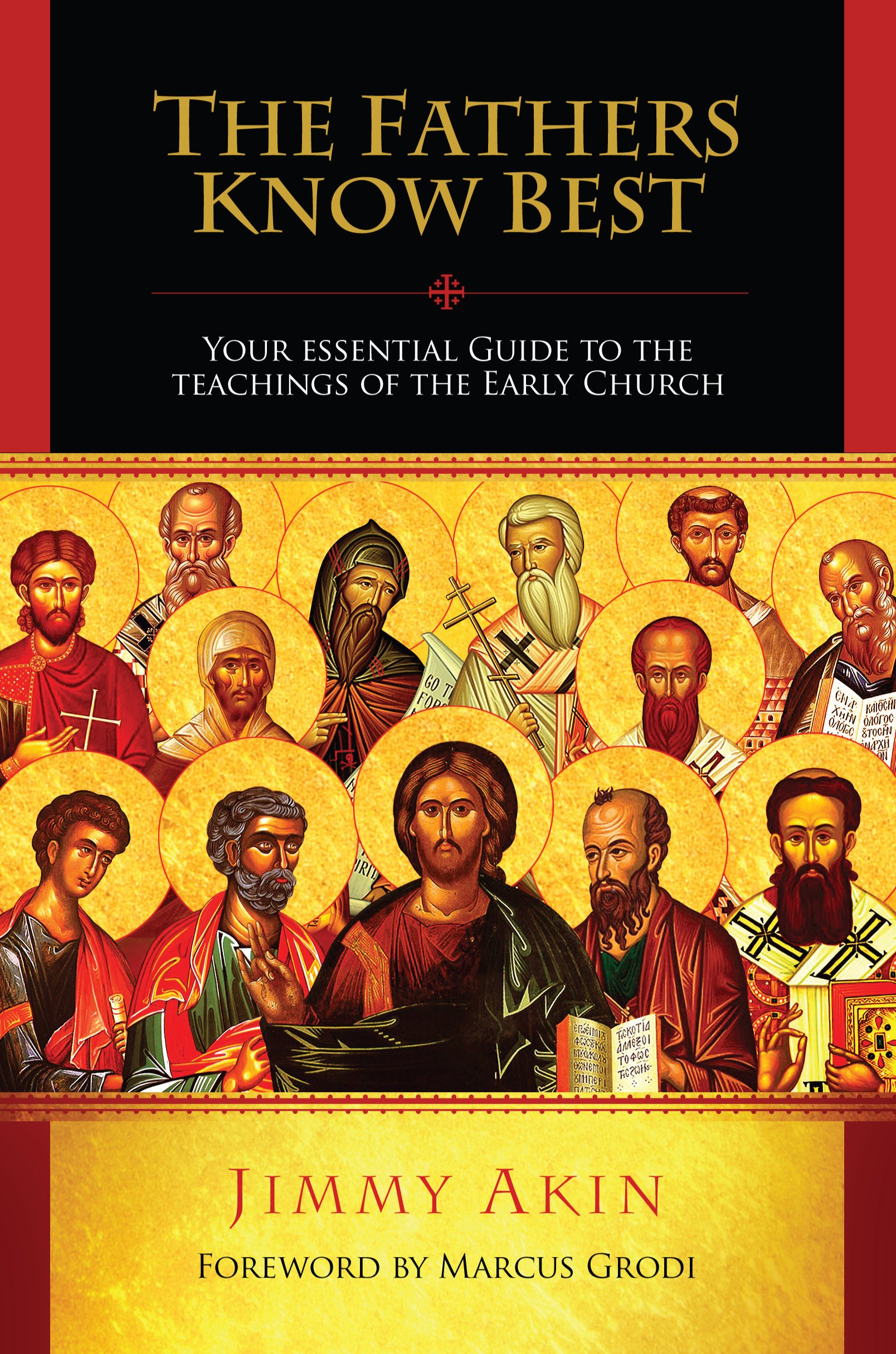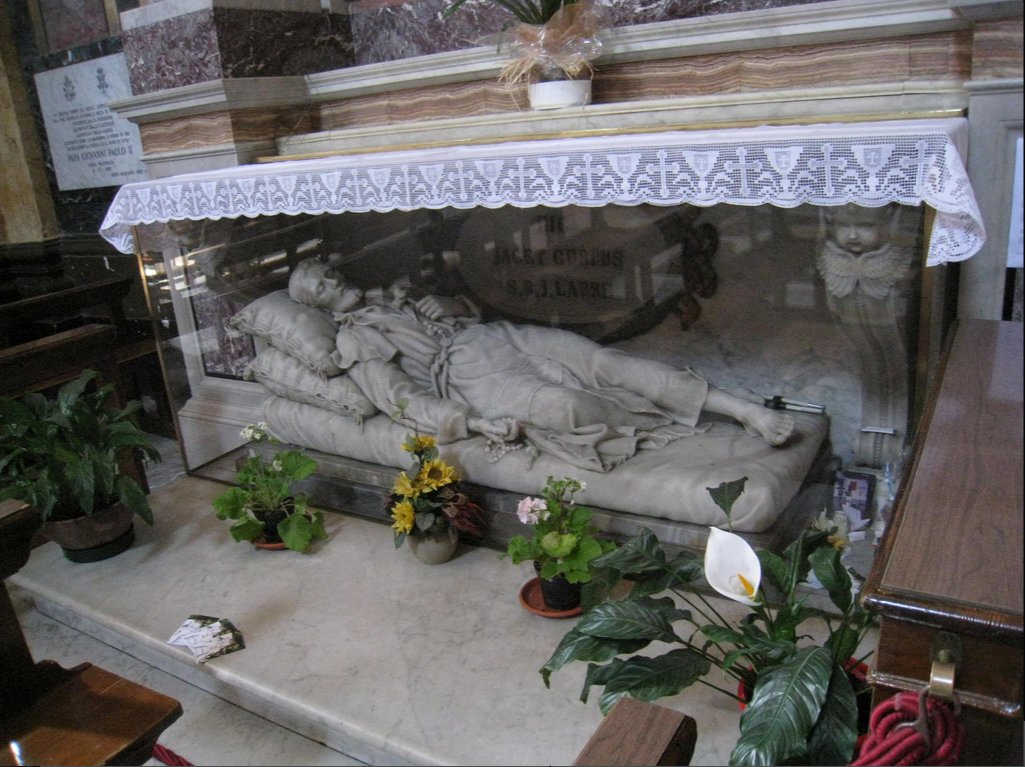

-tomb of Benedict-Joseph Labre
-from SAINTS FOR SINNERS by Alban Goodier, SJ – Fr. Alban Goodier, SJ, (1869–1939) was a Jesuit author who served for a time as Archbishop of Bombay, India.
“There is no condition of life which the grace of God has not sanctified; this is the first reflection that must rise in the mind of anyone who studies the history of Benedict Joseph Labre. He died a beggar in Rome in 1783. Within a year of his death his reputation for sanctity had spread, it would seem, throughout Europe. The man and his reputed miracles were being discussed in London papers before the end of 1784. During that year the first authentic life of him appeared, from the pen of his confessor; it was written, as the author expressly states in the preface, because so many tales were being told about him. In 1785 an abridged translation was published in London; surely a remarkable witness, when we consider the place and the times—it was only five years after the Gordon riots—to the interest his name had aroused. We wonder in our own day at the rapidity with which the name of St. Therese of Lisieux has spread over the Christian world; though St. Benedict’s actual canonization has taken a longer time, nevertheless his cultus spread more quickly, and that in spite of the revolutionary troubles of those days, and the difficulties of communication. Rousseau and Voltaire had died five years before; ten years later came the execution of Louis XVI, and the massacres of the French Revolution were at their height. In studying the life of Benedict Joseph Labre these dates cannot be without their significance.
Benedict from the beginning of his days was nothing if not original. His originality consisted mainly in this, that he saw more in life than others saw, and what he saw made him long to sit apart from it; it gave him a disgust, even to sickness, for things with which ordinary men seem to be contented. Other men wanted money, and the things that money could buy; Benedict never had any use for either. Other men willingly became the slaves of fashion and convention; Benedict reacted against it all, preferring at any cost to be free. He preferred to live his life untrammeled, to tramp about the world where he would—what was it made for but to trample on?—to go up and down, a pure soul of nature, without any artificial garnish, just being what God made him, and taking every day what God gave him, in the end giving back to God that same being, perfect, unhampered, untainted.
But it was not all at once that Benedict discovered his vocation; on the contrary, before he reached it he had a long way to go, making many attempts and meeting with many failures. He was born not far from Boulogne, the eldest of a family of fifteen children, and hence belonged to a household whose members had perforce to look very much after themselves. From the first, if you had met him, you would have said he was different from others of his class. The portrait drawn of him by his two chief biographers seems to set before us one of those quiet, meditative youths, not easy to fathom, unable to express themselves, easily misunderstood, who seem to stand aside from life, looking on instead of taking their part in it; one of those with whom you would wish to be friends yet cannot become intimate; cheerful always (the biographers are emphatic about this), yet with a touch of melancholy; whom women notice, yet do not venture too near; a puzzle to most who meet them, yet instinctively revered; by some voted “deep” and not trusted, while others, almost without reflecting on it, know that they can trust them with their very inmost souls.
Benedict had good parents, living in a comfortable state of life; their great ambition was that from their many children one at least should become a priest. Benedict, being the quiet boy he was, soon became the one on whom their hopes settled; and they spared no pains to have him educated to that end. He chanced to have an uncle, a parish priest, living some distance from his family home; this uncle gladly received him, and undertook his early education for the priesthood. Here for a time Benedict settled down, learning Latin and studying Scripture. He was happy enough, though his originality of mind dragged against him. His Latin was a bore, and he did not make much of it, but the Scriptures he loved. On the other hand, the poor in the lanes had a strange attraction for him; they were pure nature, without much of the convention that he so disliked; and he was often with them, and regularly emptied his pockets among them. Besides, he had a way of wandering off to the queerest places, mixing with the queerest people, ending up with long meditations in his uncle’s church before the Blessed Sacrament.
But in spite of these long meditations, Benedict’s uncle was by no means sure that with a character such as his, and with his wandering propensity, he would end as a priest. Meanwhile the thought came to Benedict himself that he would be a Trappist; the originality of their life, with its ideals the exact contrary to those of ordinary convention, seemed to him exactly like his own. He applied to his uncle; his uncle put him off by referring him to his parents; his parents would have none of it, and told him he must wait till he grew older. At the time of this first attempt Benedict was about sixteen years of age.
He remained some two years longer with his priest-uncle, who continued to have his doubts about him. While he was still trying to make up his mind, when Benedict was about eighteen, an epidemic fell upon the city, and uncle and nephew busied themselves in the service of the sick.
The division of labor was striking; while the uncle, as became a priest, took care of the souls and bodies of the people, Benedict went to and fro caring for the cattle. He cleaned their stalls and fed them; the chronicler tells the story as if, in spite of the epidemic, which had no fears for him, Benedict were by no means loth to exchange this life of a farm laborer for that of a student under his uncle’s roof.
But a still greater change was pending. Among the last victims of the epidemic was the uncle himself, and his death left Benedict without a home. But this did not seem to trouble him; Benedict was one of those who seldom show trouble about anything. He had already developed that peculiar craving to do without whatever he could, and now that Providence had deprived him of a home he began to think that he might do without that as well. But what was he to do? How was he to live? At first he had thought that his natural aloofness from the ordinary ways of men meant that he should be a monk. His family had put him off, but why should he not try again? He was older now, arrived at an age when young men ordinarily decide their vocations; this time, he said to himself, he would not be so easily prevented.
Benedict returned to his family with his mind made up. He loved his parents—we have later abundant evidence of that; natures like his have usually unfathomed depths of love within them which they cannot show. He would not go without their consent.
He asked, and again they refused; his mother first, and then all the rest of the household with her. But he held on in his resolution, till at length in despair they surrendered, and Benedict set off with a glad heart in the direction of La Trappe.
He arrived there only to be disappointed. The abbey at which he applied had suffered much of late from the admission of candidates whose constitutions were unfitted for the rigor of the life; in consequence the monks had passed a resolution to admit no more unless they were absolutely sound in body. Benedict did not come up to their requirements. He was under age, he was too delicate; he had no special recommendations. They would make no exception, especially so soon after the rule had been made. Benedict was sent away, and returned to his family, and all they said to him was: “We told you so.”
Still he would not surrender. For a time he went to live with another parish priest, a distant relative, that he might continue his studies, and above all perfect himself in Latin. But the craving to go away would not leave him. If the Trappists would not have him, perhaps the Carthusians would. At least he could try. Once more he told his parents of his wish, and again, more than ever, they opposed him. They showed him how his first
failure was a proof that he would fail again; how he was throwing away a certain future for a shadow; how those best able to judge were all against him, how with his exceptional education he might do so much good elsewhere. Still he would have his way, and one day, when he had won a consent from his parents that at least he might try, he went off to ask for admission among the Carthusians of Montreuil. But here again he met with the same response. The monks were very kind, as Carthusians always are; they showed him every mark of affection, but they told him as well that he had no vocation for them. He was still too young to take up such a life; he had not done so much as a year of philosophy; he knew nothing of plain chant; without these he could not be admitted among them.
Benedict went off, but this time he did not return straight home.
If one Carthusian monastery would not have him, perhaps another would. There was one at Longuenesse; he was told that there they were in need of subjects, and postulants were more easily admitted. He tramped off to Longuenesse and applied; to his joy the monks agreed to give him a trial. But the trial did not last long. Benedict did his best to reconcile himself to the life, but it was all in vain. Strange to say, the very confinement, the one thing he had longed for, wore him down. The solitude, instead of giving him the peace he sought, seemed only to fill him with darkness and despair. The monks grew uneasy; they feared for the brain of this odd young man they told him he had no vocation and he was dismissed.
Benedict came home again, but his resolution was in no way shaken. His mother, naturally more than ever convinced that she was right, left no stone unturned to win him from his foolish fancy. Friends and neighbors joined in; they blamed him for his obstinacy, they accused him of refusing to recognize the obvious will of God, they called him unsociable, uncharitable, selfish, unwilling to shoulder the burden of life like other young men of his class. Still, in spite of all they said, Benedict held on.
He could not defend himself; nevertheless he knew that he was right and that he was following a star which would lead him to his goal at last. Since the Carthusians had said that he could not be received among them because he knew no philosophy or plain chant, that a year’s course in these was essential, he found someone willing to teach him, and much as he disliked the study, he persevered for the year as he had been told. Then he applied once more at Montreuil. The conditions had been fulfilled, he was now older and his health had been better; he had proved his constancy by this test imposed upon him; though many of the monks shook their heads, still they could see that this persistent youth would never be content till he had been given another trial, and they received him.
But the result was again the same. He struggled bravely on with the life, but he began to shrink to a shadow. The rule enjoined quiet in his cell, and he could not keep still. After six weeks of trial the monks had to tell him that he was not designed for them, and asked him to go. He went, but this time not home; he made up his mind never to go home any more. He would try the Trappists again or some other confined Order; perhaps he would have to go from monastery to monastery till at last he found peace, but he would persevere. At any rate he would no longer trouble, or be a burden to, his parents or his family. On the road, after he had been dismissed from Montreuil, he wrote a letter to his parents; it is proof enough that with all his strange ways he had a very wide place in his heart for those he dearly loved.
“My dear Father and Mother,
“This is to tell you that the Carthusians have judged me not a proper person for their state of life, and I quitted their house on the second day of October.—I now intend to go to La Trappe, the place which I have so long and so earnestly desired. I beg your pardon for all my acts of disobedience, and for all the uneasiness which I have at any time caused you.—By the grace of God I shall henceforth put you to no further expense, nor shall I give you any more trouble.—I assure you that you are now rid of me. I have indeed cost you much; but be assured that, by the grace of God, I will make the best use of, and reap benefits from, all that you have done for me.—Give me your blessing, and I will never again be a cause of trouble to you.—I very much hope to be received at La Trappe; but if I should fail there, I am told that at the Abbey of Sept Fonts they are less severe, and will receive candidates like me. But I think I shall be received at La Trappe.”
With hopes such as these he came to La Trappe and again was disappointed; the good monks declined even to reconsider his case. But he went on to Sept Fonts, as he had said he would in his letter, and there was accepted; for the third time he settled down to test his vocation as a monk. The trial lasted only eight months. He seems to have been happier here than anywhere before, yet in another sense he was far from happy. This youth with a passion for giving up everything, found that even in a Trappist monastery he could not give up enough. He craved to be yet more poor than a Trappist, he craved to be yet more starving; and what with his longing to give away more, and his efforts to be the poorest of the poor, he began to shrink to a mere skeleton, as he had done before at Montreuil. Added to this he fell ill, and was disabled for two months. Once more the community grew anxious; it was only too clear that he would never do for them. As soon as he was well enough to take the road he was told that he must go, that the strict life of the Trappist was too much for him and with a “God’s will be done” on his lips, and some letters of recommendation in his pocket, Benedict again passed out of the monastery door, into a world that hurt him.
Nevertheless in those few months he had begun at last to discover his true vocation. Though the longing for the monastic life did not entirely leave him, still he was beginning to see that there was now little hope of his being able to embrace it in the ordinary way. He was unlike other men; he must take the consequences and he would. He could not be a monk like others, then he would be one after his own manner. He could not live in the confinement of a monastery; then the whole world should be his cloister. There he would live, a lonely life with God, the loneliest of lonely men, the outcast of outcasts, the most pitied of all pitiful creatures, “a worm and no man, the reproach of men, and the outcast of the people.” He would be a tramp, God’s own poor man, depending on whatever men gave him from day to day, a pilgrim to heaven for the remainder of his life. He was twenty-five years of age.
He set off on his journey, with Rome as his first objective, a long cloak covering him, tied with a rope round the waist, a cross on his breast, a large pair of beads round his neck; his feet were partly covered with substitutes for shoes, carefully prepared, one might have thought, to let in water and stones. In this dress he braved every kind of weather, rain and snow, heat and the bitterest cold; he faced and endured it all without ever wincing or asking for a change. Over his shoulder he carried an old sack in which were all his belongings; chief among these were a bible and prayerbook. He ate whatever men gave him; if they gave him nothing he looked to see what he could find on the roadside. He refused to take thought for the morrow, if at any time he had more than sufficed for the day, he invariably gave it to another.
Moreover, as a result of his poverty, Benedict soon ceased to be clean; the smell of Benedict was not always pleasant; even his confessor, who wrote his life, tells us very frankly that when Benedict came to confession he had to protect himself from vermin. Men of taste, even those who later came to look on him as a saint, could scarcely refrain from drawing aside when he came near them; and when they did, then was Benedict’s heart full of joy. He had found what he wanted, his garden enclosed, his cloister that shut him off in the middle of the world; and the more he was spurned and ignored, the more did he lift up his eyes to God in thanksgiving.
With this light dawning on his soul, soon to grow into full noon, Benedict set out on his travels. He had gone through a long noviceship, living as it were between two worlds, one of which he would not have, while the other had repeatedly closed its doors to him; now at last his life proper had begun. We can discover his final decision in a letter he wrote to his parents from Piedmont, when he had now left France, and was half-way on his journey to Rome. It is a letter full of soul and warmth; it teems with sympathy and interest for others; there is not a word which implies bitterness or disappointment; the man who wrote it was a happy man, in no way disgruntled; evidently his only fear is that he may give pain to those he loved.
“My dear Father and Mother, “You have heard that I have left the Abbey of Sept Fonts, and no doubt you are uneasy and desirous to know what route I have taken, and what kind of life I intend to adopt.—I must therefore acquaint you that I left Sept Fonts in July; I had a fever soon after I left, which lasted four days, and I am now on my way to Rome.—I have not traveled very fast since I left, on account of the excessive hot weather which there always is in the month of August in Piedmont, where I now am, and where, on account of a little complaint, I have been detained for three weeks in a hospital where I was kindly treated. In other respects I have been very well. There are in Italy many monasteries where the religious live very regular and austere lives, I design to enter into one of them, and I hope that God will prosper my design.—Do not make yourselves uneasy on my account. I will not fail to write to you from time to time. And I shall be glad to hear of you, and of my brothers and sisters; but this is not possible at present, because I am not yet settled in any fixed place; I will not fail to pray for you every day. I beg that you will pardon me for all the uneasiness that I have given you; and that you will give me your blessing, that God may favor my design.—I am very happy in having undertaken my present journey. I beg you will give my compliments to my grandmother, my grandfather, my aunts, my brother James and all my brothers and sisters, and my uncle Francis. I am going into a country which is a good one for travelers. I am obliged to pay the postage of this to France. “Again I ask your blessing, and your pardon for all the uneasiness I have given you, and I subscribe myself, “Your most affectionate son, Benedict Joseph Labre. “Roziers in Piedmont, Aug. 31, 1770.”
This was the last letter he appears to have written to his family.
He had promised to write again; if he wrote, the letter has perished. Indeed from this moment they seem to have lost sight of him altogether; the next they heard of him was fourteen years later, when his name was being blazoned all over Europe as that of a saint whose death had stirred all Rome. And he never heard from them. He had told them he could give them no address, because he had no fixed abode; from this time forward he never had one, except during the last years in Rome, and that for the most part was in a place where the post could scarcely have found him, as we shall see.
Except to give an idea of the nature and extent of his wanderings during the next six or seven years, it is needless to recall all the pilgrimages he made. They led him over mountains and through forests, into large cities and country villages, he slept under the open sky, or in whatever sheltered corner he could find, accepting in alms what sufficed for the day and no more, clothed with what men chose to give him, or rather with what they could induce him to accept; alone with God everywhere and wanting no one else. During this first journey he called on his way at Loreto and Assisi. Arrived in Rome, footsore and ill, he was admitted for three days into the French hospital; then for eight or nine months he lingered in the city, visiting all the holy places, known to no one, sleeping no one knows where. In September of the next year we find him again at Loreto; during the remaining months of that year, and through the winter, he seems to have visited all the sacred shrines in the kingdom of Naples. He was still there in February, 1772, after which he returned to Rome. In June he was again at Loreto, thence he set out on his tour to all the famous shrines of Europe. In 1773 he was tramping through Tuscany; in 1774, after another visit to Rome, he was in Burgundy; during the winter of that year he went to Einsiedeln in Switzerland, choosing the coldest season of the year for this visit to the mountain shrine. 1775, being the Jubilee year, he again spent in Rome; in 1776 he was making pilgrimages to the chief places of devotion in Germany. At the end of that year he settled down definitely in Rome, going away henceforth only on special pilgrimages, most of all to his favorite Loreto, which he did not fail to visit every year.
Naturally enough stories are recalled of the behavior of this peculiar man on his journeys. He seems never to have had in his possession more than ten sous, or five pence, at a time; when charitable people offered him more than sufficed for the day he invariably refused it. At Loreto, where he came to be known perhaps more than anywhere else, at first he lodged in a barn at some distance from the town; when compassionate friends found a room for him closer to the shrine, he refused it because he found it contained a bed. In Rome, as we have already hinted, his home for years was a hole he had discovered among the ruins of the Coliseum; from this retreat he made daily excursions to the various churches of the city. Except when he was ill he seldom begged; he was content with whatever the passersby might give him of their own accord. Once a man, seeing him in his poverty, gave him a penny. Benedict thanked him, but finding it more than he needed, passed it on to another poor man close by. The donor, mistaking this for an act of contempt, supposing that Benedict had expected more, took his stick and gave him a beating Benedict took the beating without a word. We have this on the evidence of the man himself, recorded in the inquiry after Benedict’s death; it must be one instance of many of its kind.
But for the rest Benedict’s life was one of continued prayer; he was a Trappist in a monastery of his own making. So far as he was able he kept perpetual silence, those who knew him afterwards related that he seemed to go whole months together without allowing his voice to be heard. He lived in retirement and solitude, he would accept no friend or companion; he would have only God, a few who had come to notice him, and who helped him when he would allow them, were invariably treated as patrons and benefactors, but no more. When a convent of nuns, at which occasionally he applied, had observed him and began to show him more interest and respect, Benedict discovered their esteem and never went near them again. All his possessions were a few books of devotion and a wooden bowl; the latter had split, and he had kept it together with a piece of wire. He fasted and abstained continually, sometimes perforce, sometimes by chance by constantly kneeling on the hard ground, or the stone floors of the churches, he developed sores on both knees. He deliberately tried to be despised and shunned, and when men could not refrain from showing contempt in their manner, then would Benedict’s face light up with real joy. Let his confessor, who wrote his life a year after his death, describe his first meeting with him: “In the month of June, 1782, just after I had celebrated mass in the church of St. Ignatius belonging to the Roman College, I noticed a man close beside me whose appearance at first sight was decidedly unpleasant and forbidding. His legs were only partially covered, his clothes were tied round his waist with an old cord. His hair was uncombed, he was ill-clad, and wrapped about in an old and ragged coat. In his outward appearance he seemed to be the most miserable beggar I had ever seen. Such was the spectacle of Benedict the first time I beheld him.”
For what remains of Benedict’s story we cannot do better than follow the guidance of this director. After the priest had finished his thanksgiving, on the occasion just mentioned, Benedict approached him and asked him to appoint a time when he would hear his general confession. The time and place were arranged.
During the confession the priest was surprised, not only at the care with which it was made, but also at the knowledge his penitent showed of intricate points of theology. He concluded that, beggar though he was then, he had evidently seen better days; indeed he felt sure that he had once been a clerical student. He therefore interrupted the confession to ask whether he had ever studied divinity. “I, Father?” said Benedict. “No, I never studied divinity. I am only a poor ignorant beggar.”
The confessor at once recognized that he was dealing with something unusual. He resolved to do for him all he could, and for the future to keep him carefully in mind.
As it has so often been in God’s dealings with hidden saints whom He has willed that men should come at last to know, that apparently chance meeting was the means by which the memory of Benedict was saved. It took place in June, 1782; in April of the following year Benedict died. During those ten months the priest to whom he addressed himself had ample opportunity to watch him. As the weeks passed by he grew in wonder at the sanctity that lay beneath rags; and yet he tells us that, not a little fastidiously clean as he seems to have been himself, it never so much as occurred to him to bid Benedict mend his ways. To hear his confession cost him an effort, yet he never thought twice about making that effort; only at times, for the sake of others, the appointed place was out of the way.
He saw him last on the Friday before Holy Week, 1783, when Benedict came to make his confession as usual. He remarks that though always before Benedict had fixed the day when he would come again, this time he made no appointment. The next the priest heard of him was that he was dead, exactly a week later.
But he was not surprised. For some months before, when once he had come to know Benedict and his way of life, he had wondered how he lived. Apart from his austerities, and his invariable choice of food that was least palatable, of late his body had begun to develop sores and ulcers. The priest had spoken to him on this last point, and had exhorted him at least to take more care of his sores, but Benedict had taken little notice. On his side, as the confessor could not but notice, and as is common with saints as death draws nearer, the love of God that was in him left him no desire to live any longer.
It came to Wednesday in Holy Week. Among the churches which Benedict frequented none saw him more than S. Maria dei Monti, not very far from the Coliseum. In this church he usually heard mass every morning; in the neighborhood he was well known. On this day he had attended the morning services; as he went out of the door, about one in the afternoon, he was seen to fall on the steps. Neighbors ran towards him. He asked for a glass of water, but he could not lift himself up. A local butcher, who had often been kind to Benedict, offered to have him carried to his house, and Benedict agreed. They laid him on a bed, as they thought, to rest; but it soon became clear that he was dying. A priest was sent for, the Last Sacraments were administered; but Benedict was too weak to receive Viaticum. The prayers for the dying were said; at the words: “Holy Mary, pray for him,” Benedict died, without a sigh or a convulsion. It was the 16th of April, 1783: Benedict was thirty-five years of age.
And now some remarkable things happened. His confessor and first biographer writes: “Scarcely had this poor follower of Christ breathed his last when all at once the little children from the houses hard by filled the whole street with their noise, crying out with one accord: ‘The Saint is dead, the Saint is dead.’—But presently after they were not only young children who published the sanctity of Benedict; all Rome soon joined in their cries, repeating the self-same words: ‘A Saint is dead.’ . . . Great numbers of persons who have been eminent for their holiness, and famous for their miracles, have ended the days of their mortal life in this city; but the death of none of them ever excited so rapid and lively an emotion in the midst of the people as the death of this poor beggar. This stirred a kind of universal commotion; for in the streets scarcely anything could be heard but these few words: ‘There is a saint dead in Rome. Where is the house in which he has died?”‘
Nor does this description seem to have been exaggerated. Not only was it written within a year of the event, so that anyone could bear witness to its truth; but we know that scarcely was Benedict dead before two churches were contending for the privilege of possessing his body. At length it was decided that it should be given to S. Maria dei Monti, which he had most frequented; and thither, on the Wednesday night, it was carried.
So great was the crowd that the guard of police had to be doubled; a line of soldiers accompanied the body to the church; more honor could scarcely have been paid to a royal corpse.
From the moment that it was laid there the church was thronged with mourners; the next day, Maundy Thursday, and again throughout Good Friday, it almost lay in state during all the Holy Week services. The throng all the time went on increasing, so that the Cardinal Vicar was moved to allow the body to remain unburied for four days. People of every rank and condition gathered there; at the feet of Benedict the Beggar all were made one. They buried him in the church, close beside the altar, on Easter Sunday afternoon; when the body was placed in the coffin it was remarked that it was soft and flexible, as of one who had but just been dead.
But the enthusiasm did not end with the funeral. Crowds continued to flock to the church, soldiers were called out to keep order. At length the expedient was tried of closing the church altogether for some days. It was of no avail; as soon as the church was reopened the crowds came again, and continued coming for two months. Nothing like it had been seen before, even in Rome; if ever anyone was declared a saint by popular acclamation it was Benedict Joseph Labre, the beggar. Then the news spread abroad. Within a year the name of Benedict was known all over Europe. Lives of him began to appear, legends began to grow, miracles, true and false, were reported from all sides; it was to secure an authentic story, among many inventions, that his confessor was called upon to write the Life that we know.
Let us add one touching note. All this time the father and mother, brothers and sisters of Benedict were living in their home near Boulogne. For more than twelve years they had heard nothing of him; they had long since presumed that he was dead.
Now, through these rumors, it dawned upon them very gradually that the saint of whom all the world was speaking was their son! “My son was dead, and is come to life again; he was lost, and is found.”
Labre’s confessor, Marconi, wrote his biography and attributed 136 separate cures to his intercession within three months of his death. Those miracles were instrumental in the conversion of the Reverend John Thayer, the first American Protestant clergyman to convert to Catholicism, who was resident in Rome at the time of St. Benedict’s death.
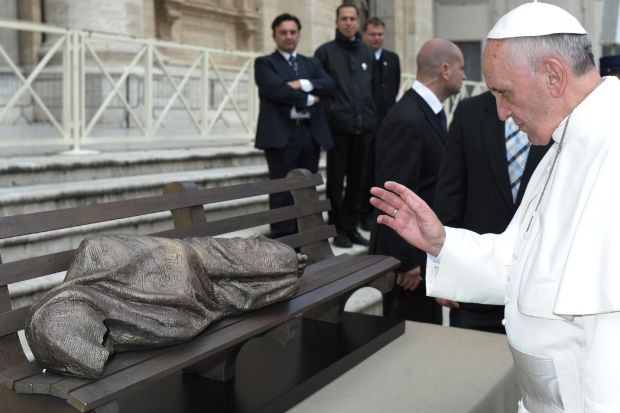
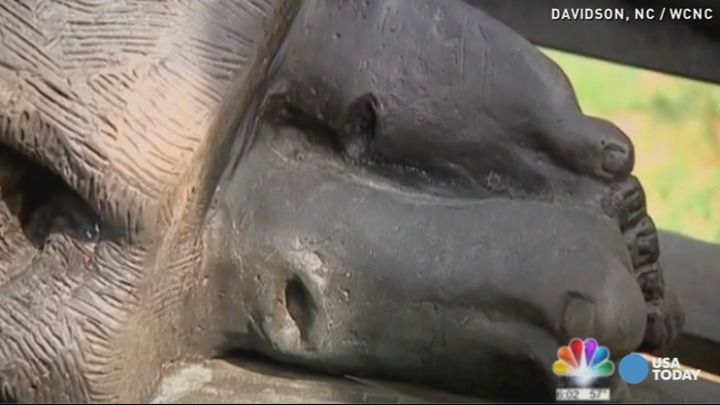
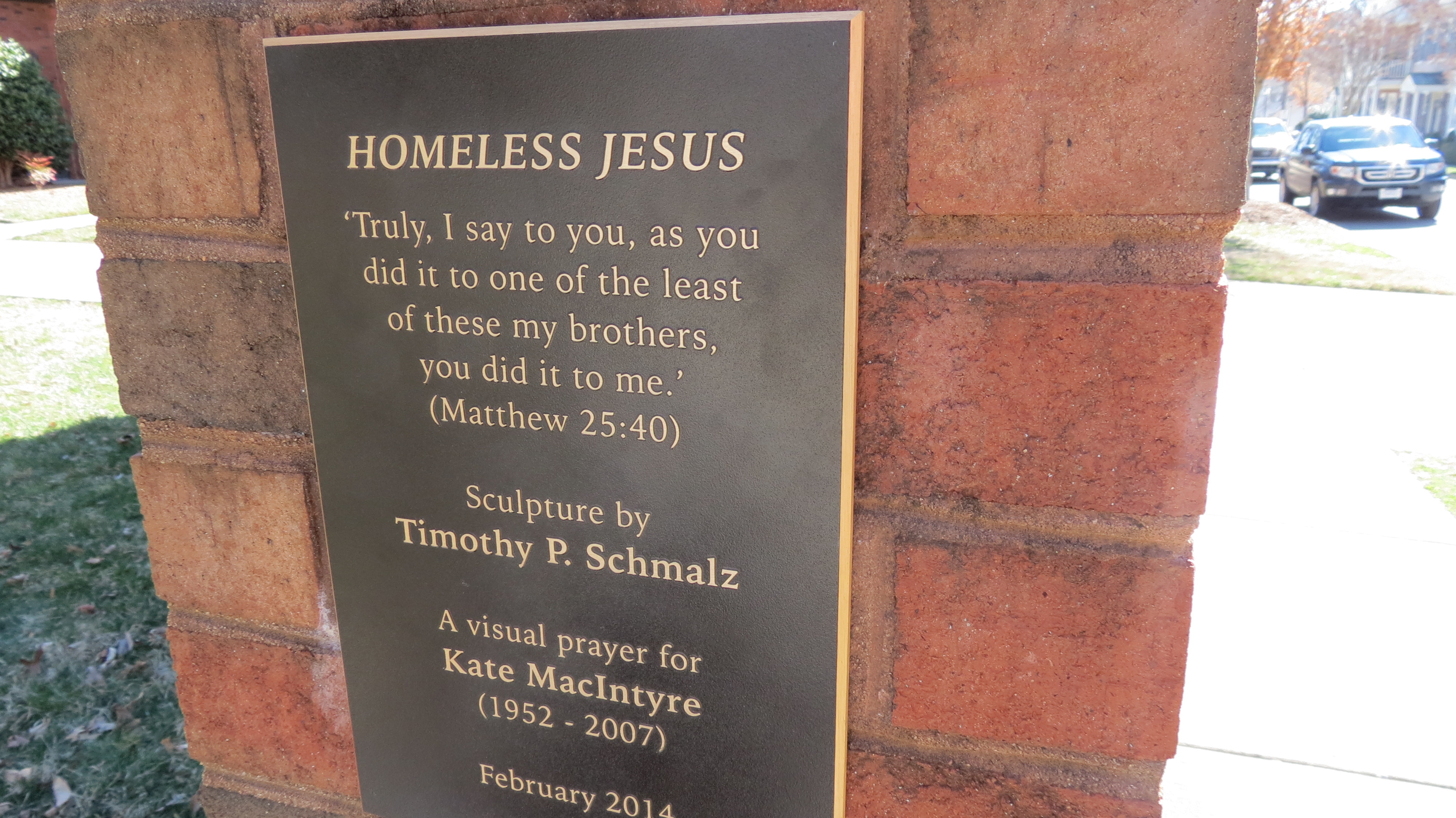
Love,
Matthew

